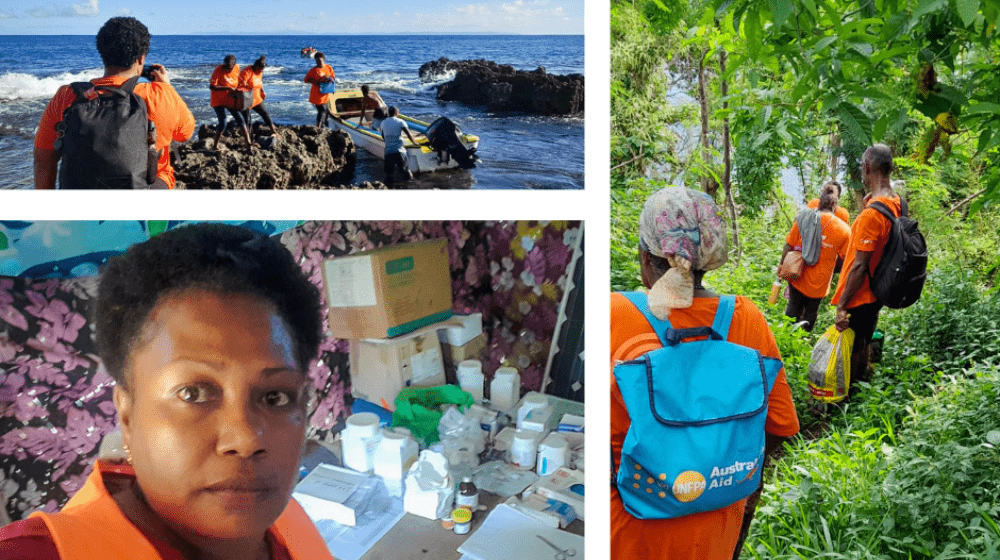In this photo-essay, we share the compelling stories of midwives from Fiji and Vanuatu, tirelessly serving in the wake of Cyclones Judy and Kevin which have hit Vanuatu in March. These vivid images depict their courageous journey amidst adversity, delivering crucial reproductive health services in cyclone-hit Vanuatu, while educating and empowering women and girls towards safer motherhood.
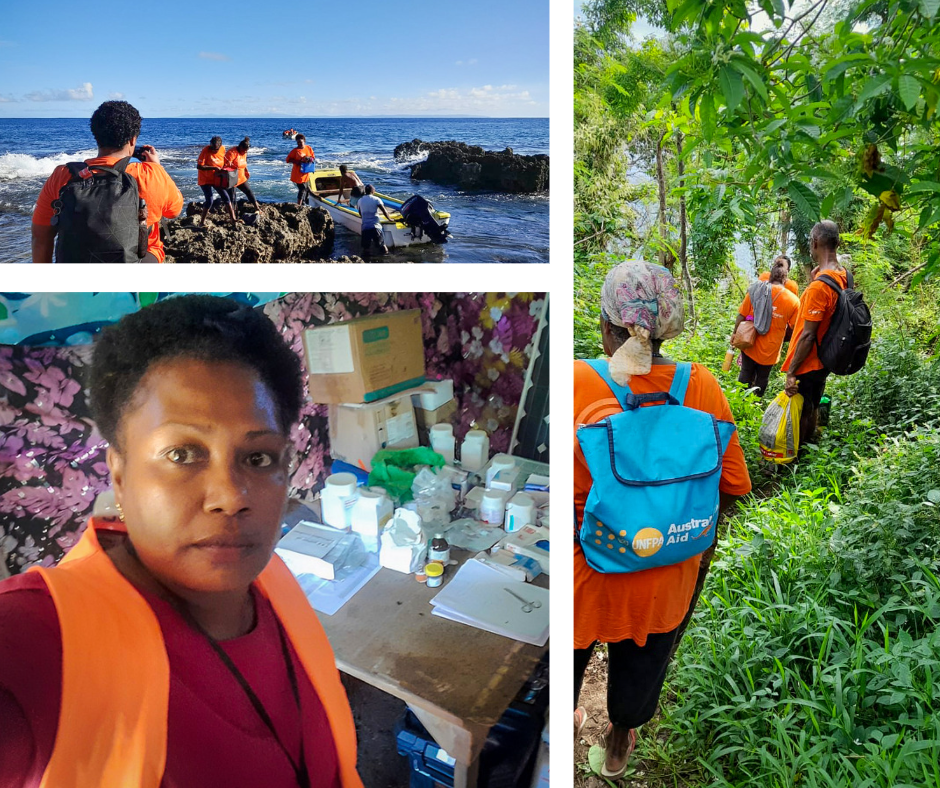
This photo montage captures the relentless efforts of Vanuatuan midwives and their support teams navigating challenging terrains in Tanna island, post TC Kevin and Judy. Whether disembarking on a remote reef, or traversing dense forest paths to reach isolated communities, their mission remains unyielding: delivering essential prenatal, delivery, and postnatal care to mothers and newborns. The hero of this story, midwife Elizabeth William, detailed the challenging circumstances her team of seven including two midwives faced travelling in Tanna island by boat across rugged coastlines, treacherous roads and dense forest paths. “I met a mother who had given birth as the cyclone hit. Because of her remote location, she had to wait two weeks before she could receive medical care. Once she heard about our midwifery team, she courageously came to find us, and we provided much needed post-natal care. Elizabeth's encounters underpin her advocacy for enhancing the preparedness of a national emergency healthcare workforce, ensuring that even during calamities, the wellbeing of every mother and child remains a priority. © Photos courtesy of Elizabeth William.
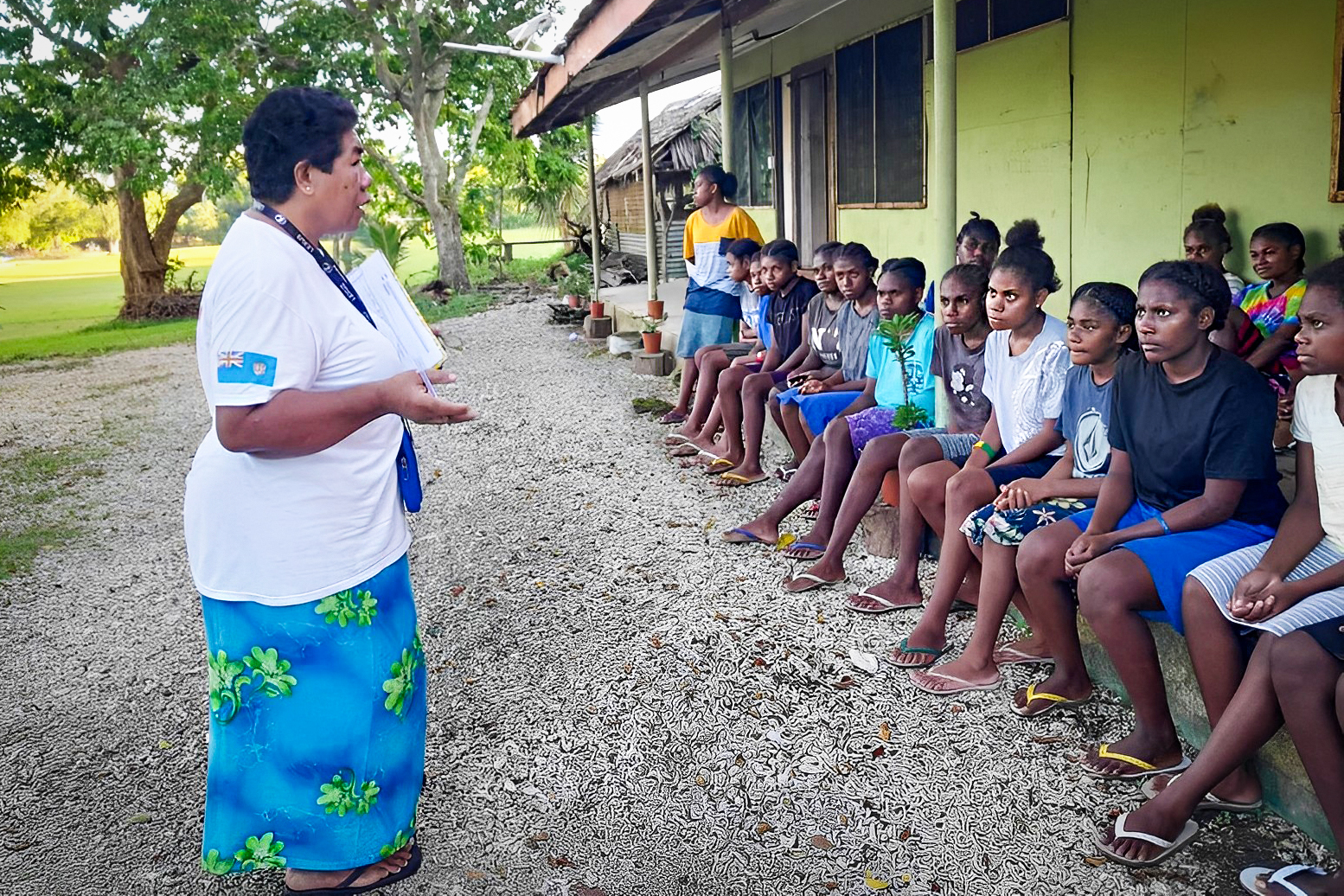
Midwife Kinisena Bolalevu conducts an outreach session at Burumba school on Epi Island. The session focused on providing menstrual hygiene education, discussing bodily changes and autonomy, gender-based violence, and the repercussions of teenage pregnancy. "When I was distributing the menstrual hygiene kits to the students, I noticed a 15-year-old girl named Elisa with tears streaming down her face," Kinisena recalls. "I asked her why she was crying and she shared with me that she was simply overwhelmed with gratitude. She confided in me that she had never been educated about menstruation before. Each month, she isolated herself and bathed in the river, confused and scared, thinking something was wrong with her. Touched by Elisa's story, I made it a point to reassure her that menstruation is a completely natural and healthy process. It's a part of the changes a young girl's body goes through as she transitions from childhood to adolescence and puberty." After their conversation, Kinisena was able to provide Elisa with the knowledge and supplies she needed to manage her menstruation with dignity and confidence. © Photo courtesy of Kinisena Bolalevu.
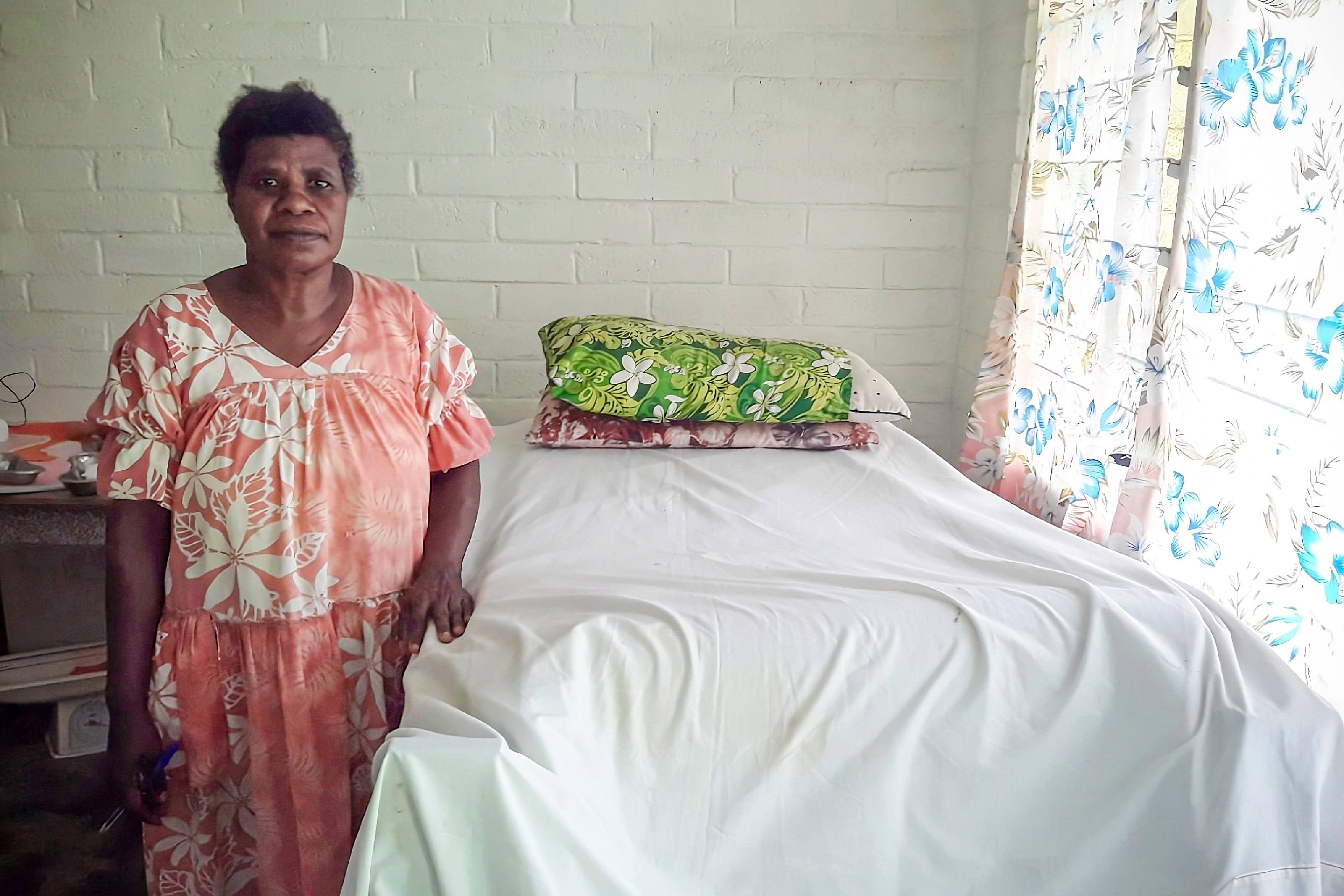
Resourcefulness amidst natural disasters. Local midwife Nelly, pictured next to her delivery bed she crafted by hand in the remote village of Ngala on Epi Island, has been a crucial figure in the aftermath of the recent cyclone. She's been addressing the immediate needs of pregnant women and new mothers, ensuring safe childbirth amidst the crisis.
Stories of women giving birth outside facilities due to cultural stigmas surrounding childbirth echo the challenges she faces daily. However, with Nelly's patient education and assurance, she's slowly transforming perceptions, reinforcing that birth is a natural, empowering process. © Photo courtesy of Kinisena Bolalevu.

This hand-drawn map by Nelly, the local midwife, depicts the community served by the Ngala dispensary in the remote South of Epi Island. Every mark on this map underscores Nelly's dedication to ensuring that no one in her community is missed, magnifying the extent of her care and the essential maternal health services she brings to her community. © Photo courtesy of Kinisena Bolalevu.
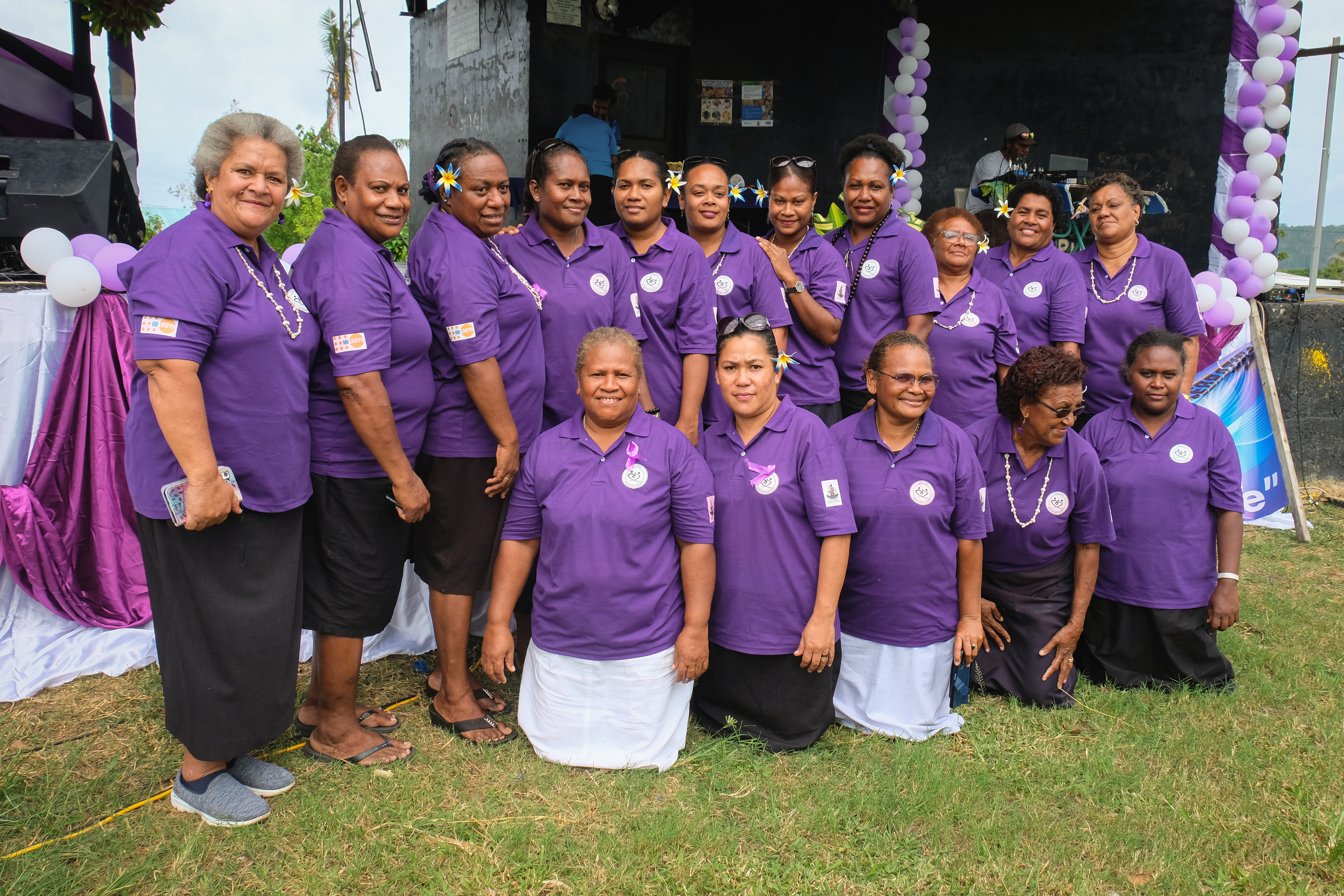
United in regional solidarity, midwives from Fiji – deployed to Vanuatu to bolster the maternal health workforce following Tropical Cyclones Kevin and Judy – joined their Vanuatuan counterparts in a march along Port Vila's waterfront on International Nurses Day. Their unity underlines the crucial role of local health workforces, a concern brought into sharp focus after Fiji recently saw 800 of its nurses voluntarily leave for opportunities in Australia. While this migration underlines the nurses' ambition and the international demand for their skills, it also spotlights the vulnerability of the Pacific region's health sector, in which nurses comprise a remarkable 74%. The ongoing need to invest in training and retaining local health professionals is thus vividly apparent. This celebration, therefore, assumes additional importance in the Pacific context. © UNFPA/David Palazón
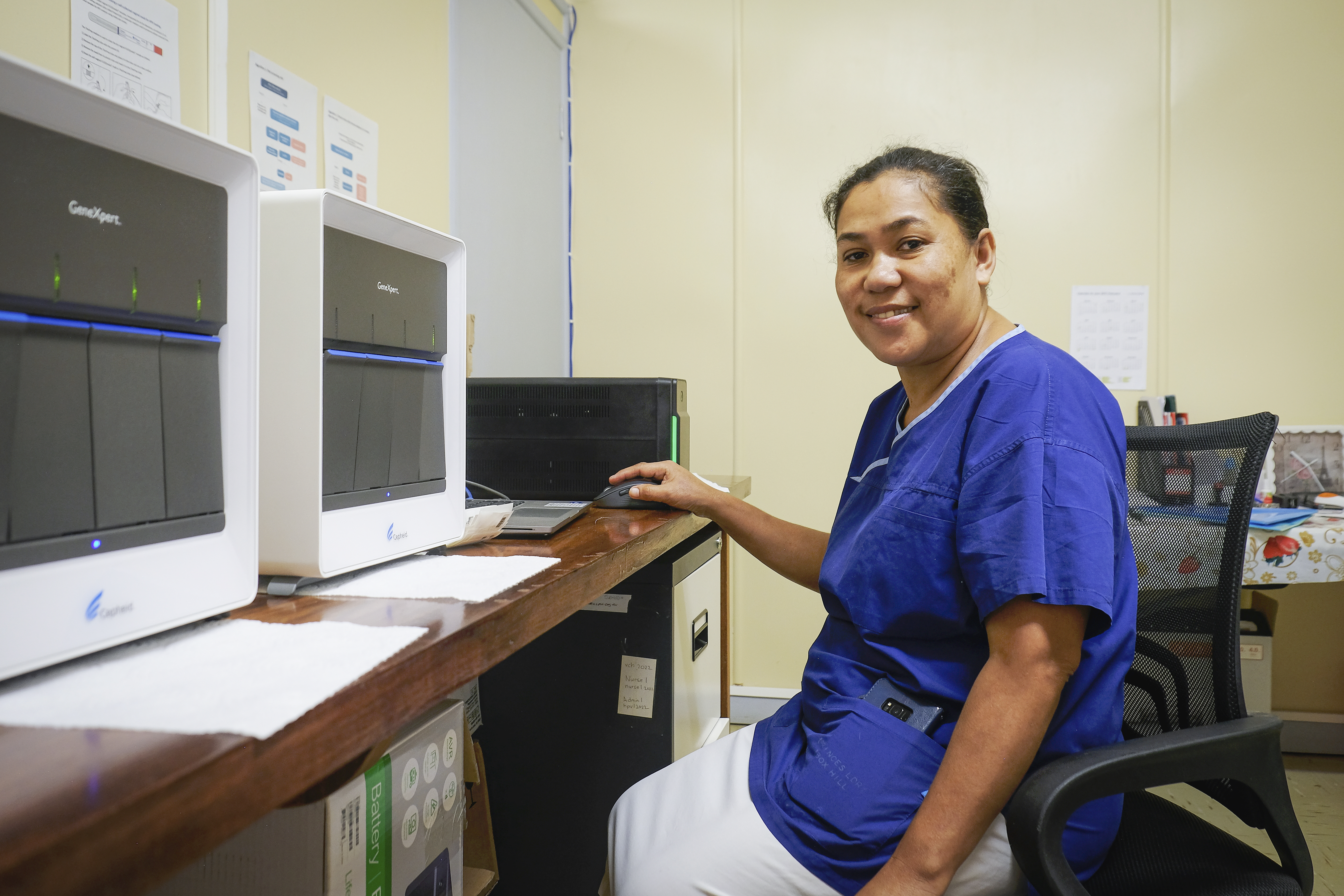
Midwife Sonia Andi from Vanuatu, fortified by an extensive training programme supported by UNFPA throughout 2022, stands at the forefront of cervical cancer screening at Vila Central Hospital. She combines her acquired knowledge in SRH, GBV, and management skills to address cervical cancer, a leading cause of death among women in the country. Her commitment to improving health outcomes remains undeterred despite systemic challenges. © UNFPA/David Palazón
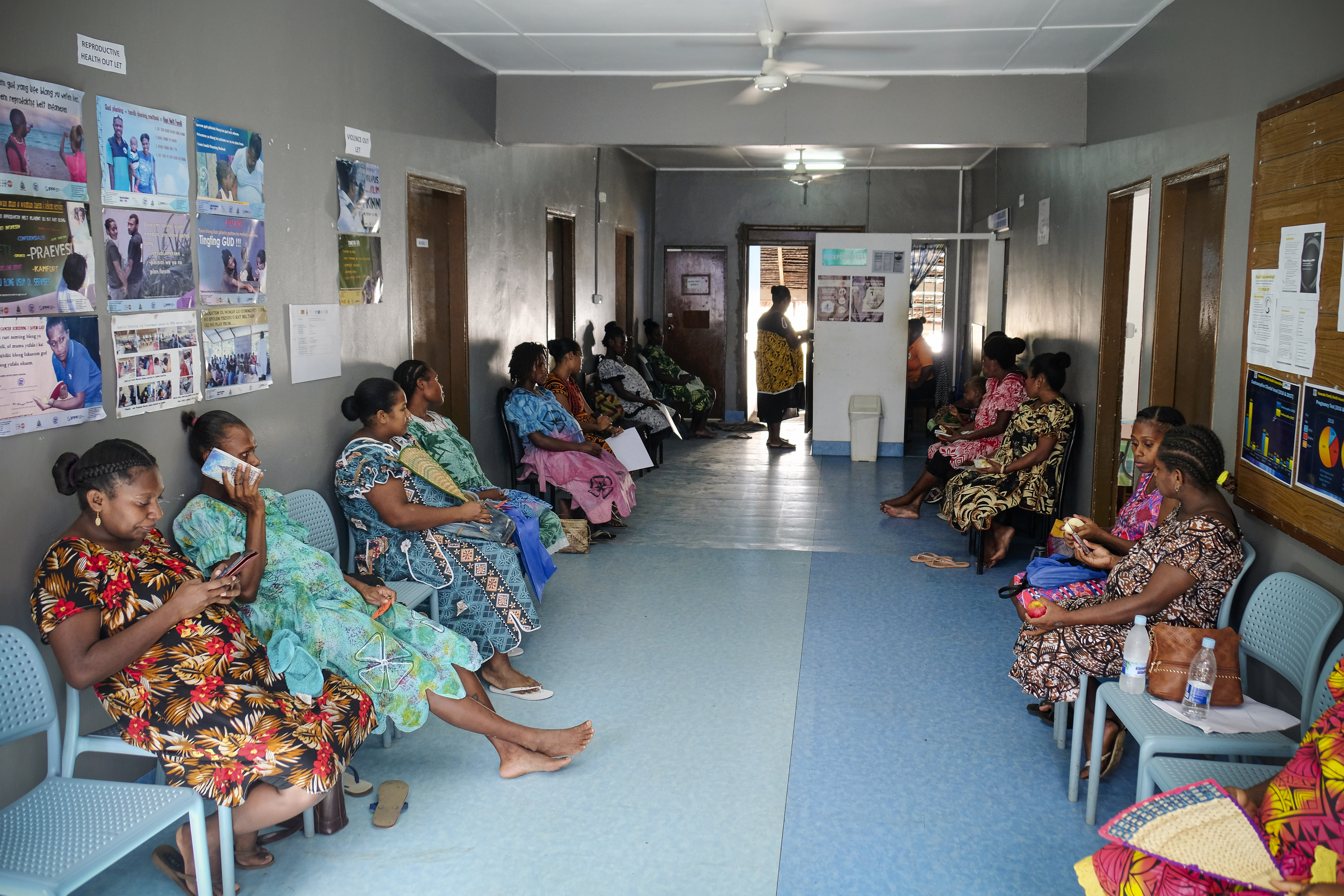
Packed waiting room at the Vanuatu Family Health Association in Port Vila where Fijian midwife Kinisena, who sees around 80 patients a day, provides care and mentoring for young nurses. Amidst familial pressures and fears of potential domestic violence, discussions about family planning can be challenging, sometimes even drawing misplaced blame towards healthcare workers. In reflecting on her work, Kinisena shares, "It's a delicate balance, often fraught with fear. Many wives do not disclose their family planning methods to their husbands because they fear gender-based violence. And many times, these cases of violence remain unreported. Once, a policewoman confided in me at the clinic that health workers are often seen as culprits in these instances. It's a heartbreaking reality, but we strive to navigate these complexities, ensuring women's safety and rights are protected. The clinic stands as a beacon of support for women navigating these complexities. © UNFPA/David Palazón
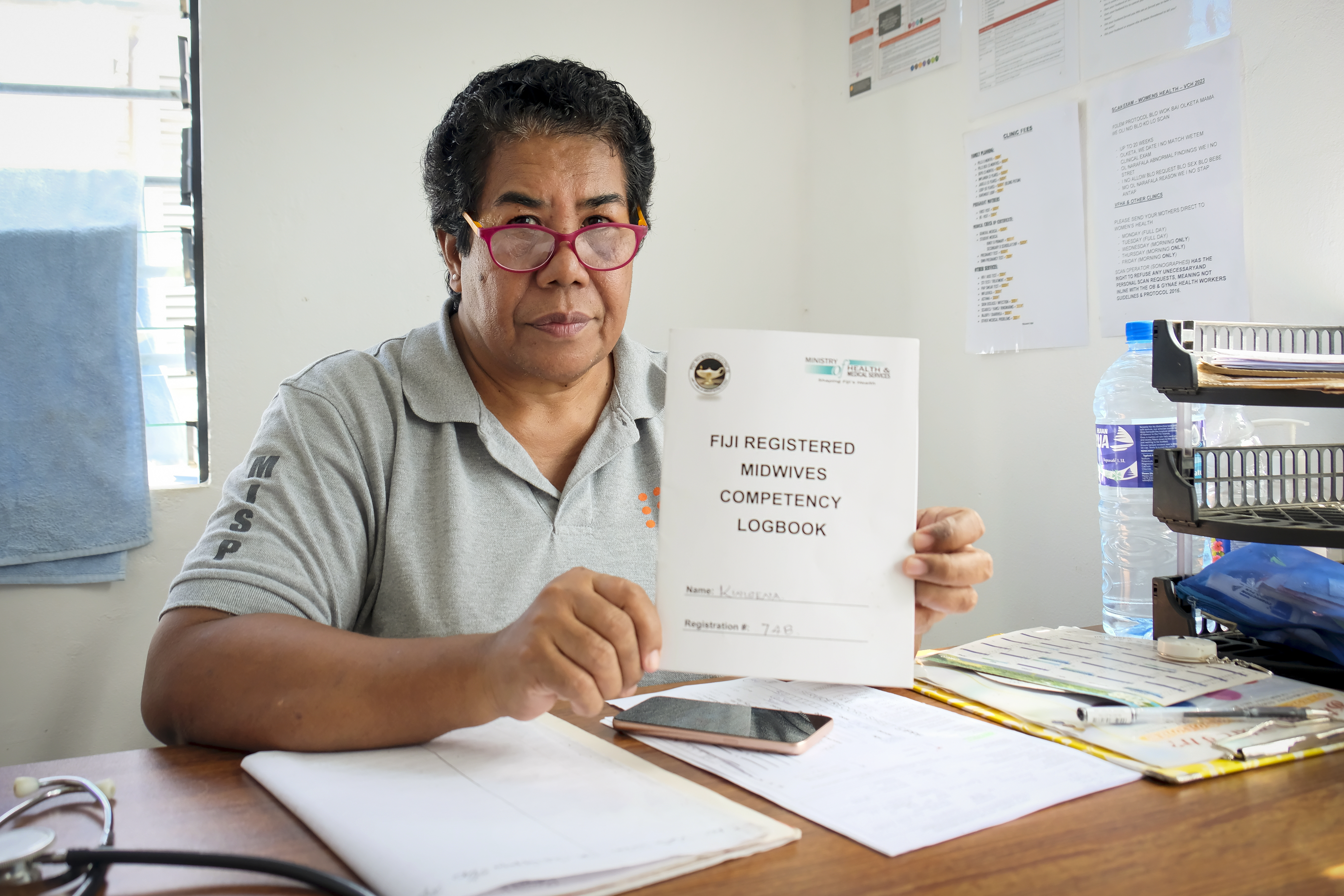
Midwife Kinisena holds her Fijian midwife competency logbook with pride, a testament to her commitment to professional excellence. “Keeping a meticulous record of my practices in this logbook is an integral part of my job,” Kinisena explains. “It's not just about maintaining my competency; it also ensures that I can renew my midwife licence in Fiji”. Kinisena passionately advocates for staff supervision and compliance, recognising the crucial role it plays in delivering quality healthcare. She is an inspiring mentor to young nurses and midwives, guiding them responsibly towards a future of committed healthcare service. © UNFPA/David Palazón
Drawing on her training and skills, Midwife Kinisena Bolalevu skilfully employs a fetoscope at the Vanuatu Family Health Association clinic. The use of fetoscopes, a widely-adopted practice across the globe, demonstrates adaptability in scenarios where advanced technology like foetal dopplers may not be accessible or operational. © UNFPA/David Palazón
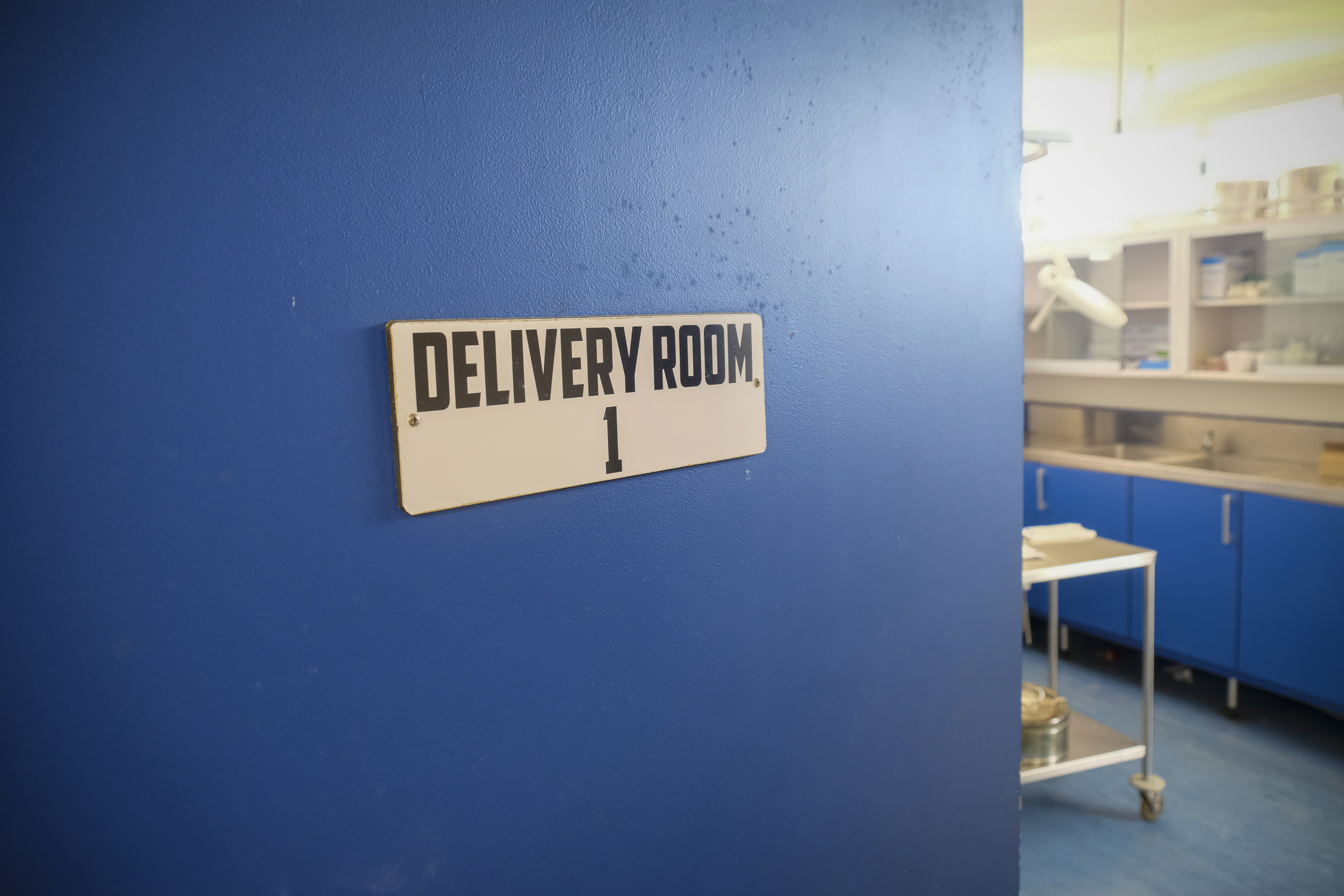
Behind this door lies one of the delivery rooms at Vila Central Hospital, the beginning of countless life stories. With a maternal mortality ratio of 94 deaths per 100,000 live births in 2020, the importance of this room and the skilled health personnel operating within it cannot be understated. Progress is evident: from 2004-2020, approximately 89% of births were attended by skilled health professionals, reinforcing our commitment to safer motherhood in Vanuatu.
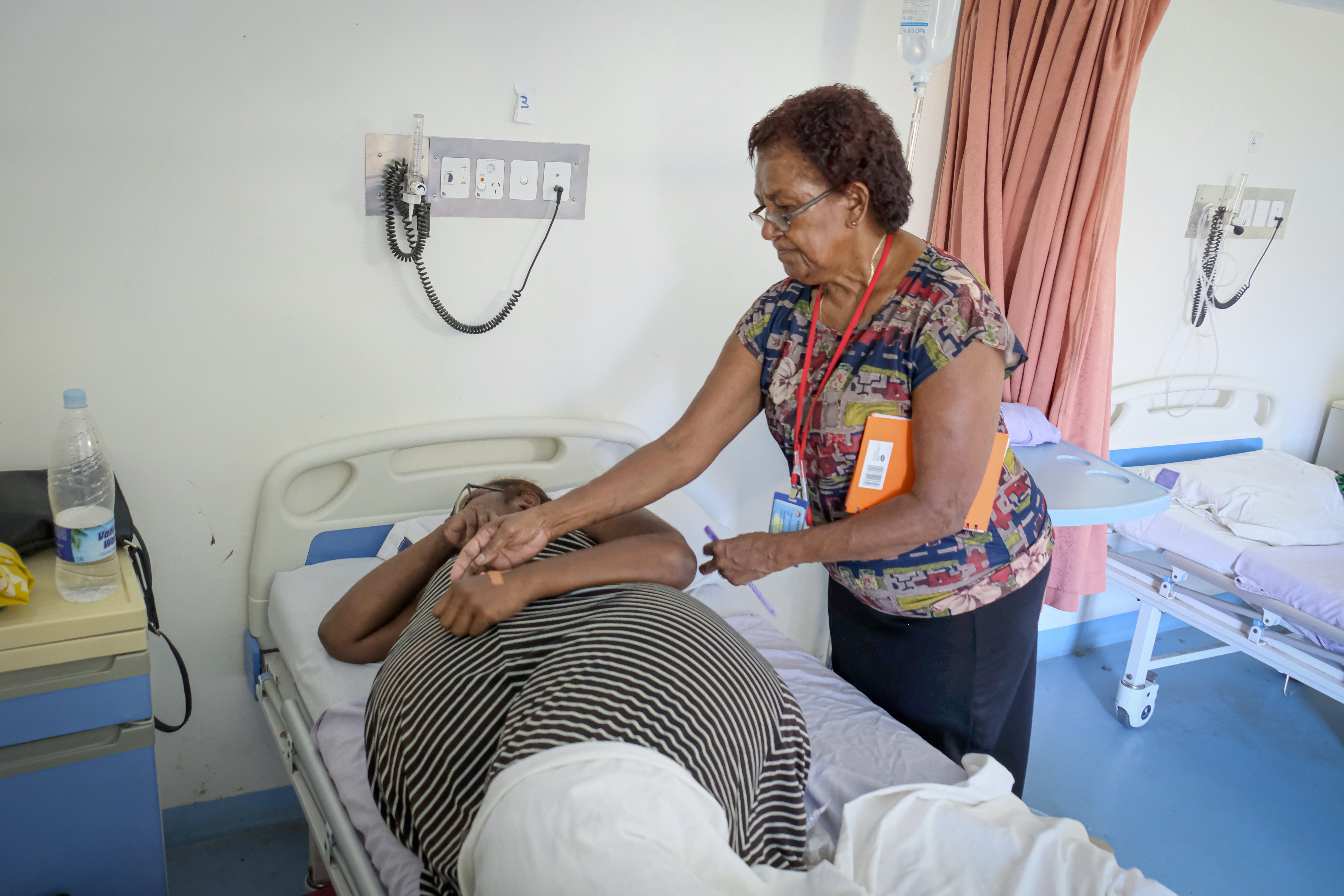
Midwife Esita Tuiba consults with Leilani, a 38-year-old mother with a complex medical history. Scheduled for a Cesarean section due to complications from diabetes and a large baby, Esita underscores the importance of informed decision-making. After thorough counselling, Leilani and her husband agreed to Esita's recommendation of a Cesarean section as well as tubal ligation as part of their post-partum family planning. © UNFPA/David Palazón
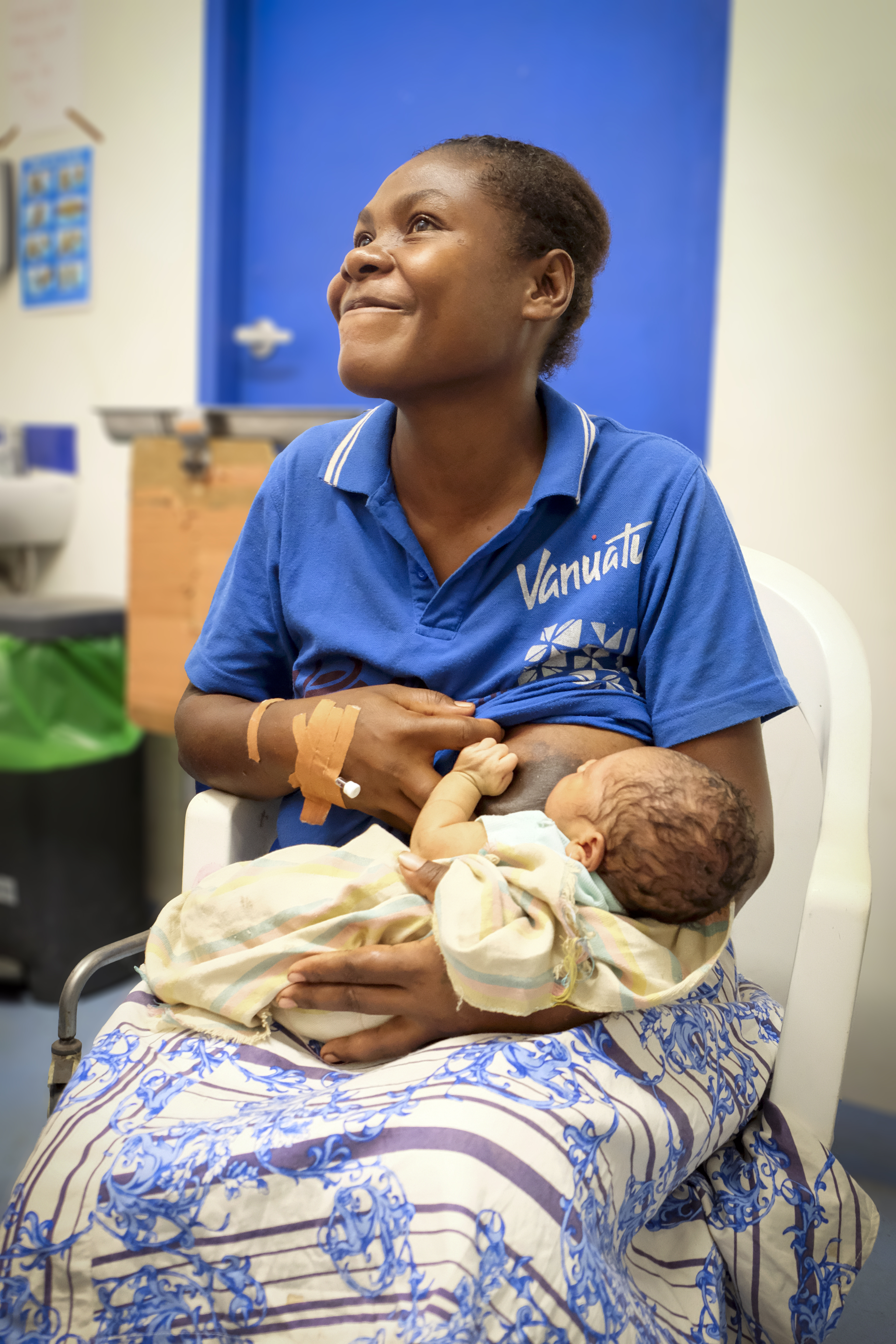
Mary Anne, warmly smiling, initiates breastfeeding within the first hour of her child's birth. Guided by the advice of a Fijian midwife, she and her husband are dedicated to their family's future. The scene mirrors the significant strides in Vanuatu's breastfeeding statistics, with 85% of mothers starting early and an impressive 73% practising exclusive breastfeeding - the second highest in the Pacific region (Levisay, A, 2015) © UNFPA/David Palazón
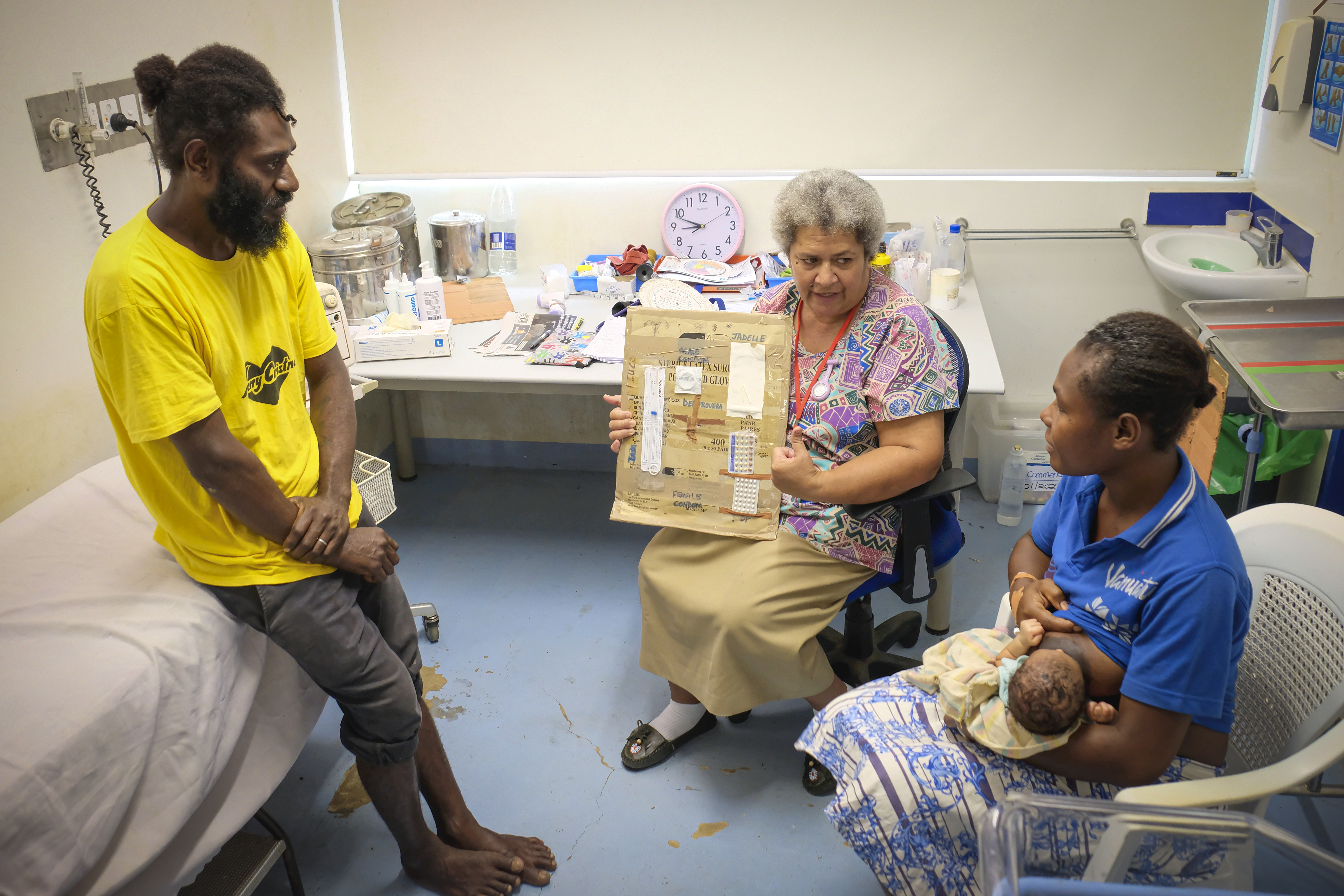
With their third baby recently welcomed, a couple discusses family planning options with Fijian midwife Emily Q. Naiceu who was deployed to Vanuatu following cyclones Judy and Kevin and to help fill the gap in sexual and reproductive health services. This embodies the efforts to meet the growing demand for modern family planning methods in Vanuatu, where 61% of the need was satisfied in 2022. © UNFPA/David Palazón
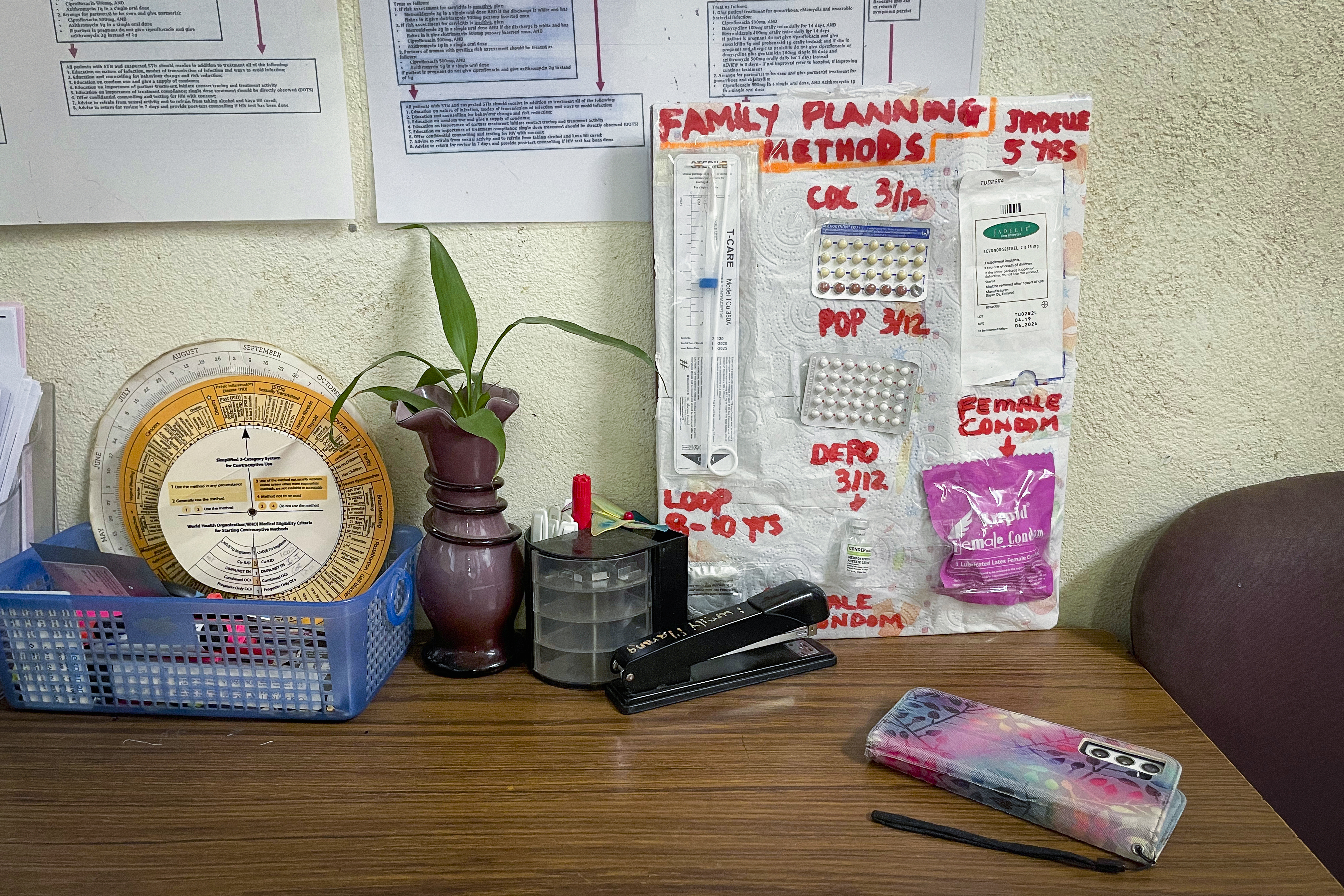
A diverse array of family planning methods are available at most clinics in Vanuatu. Female and male condoms, hormonal intrauterine devices, oral contraceptive pills, Depo-Provera injections, and Jadelle implants. This variety of contraceptives, available across the country from hospitals to aid posts, signifies the commitment to providing comprehensive reproductive health choices, empowering individuals and couples in making informed decisions about their future. © UNFPA/David Palazón
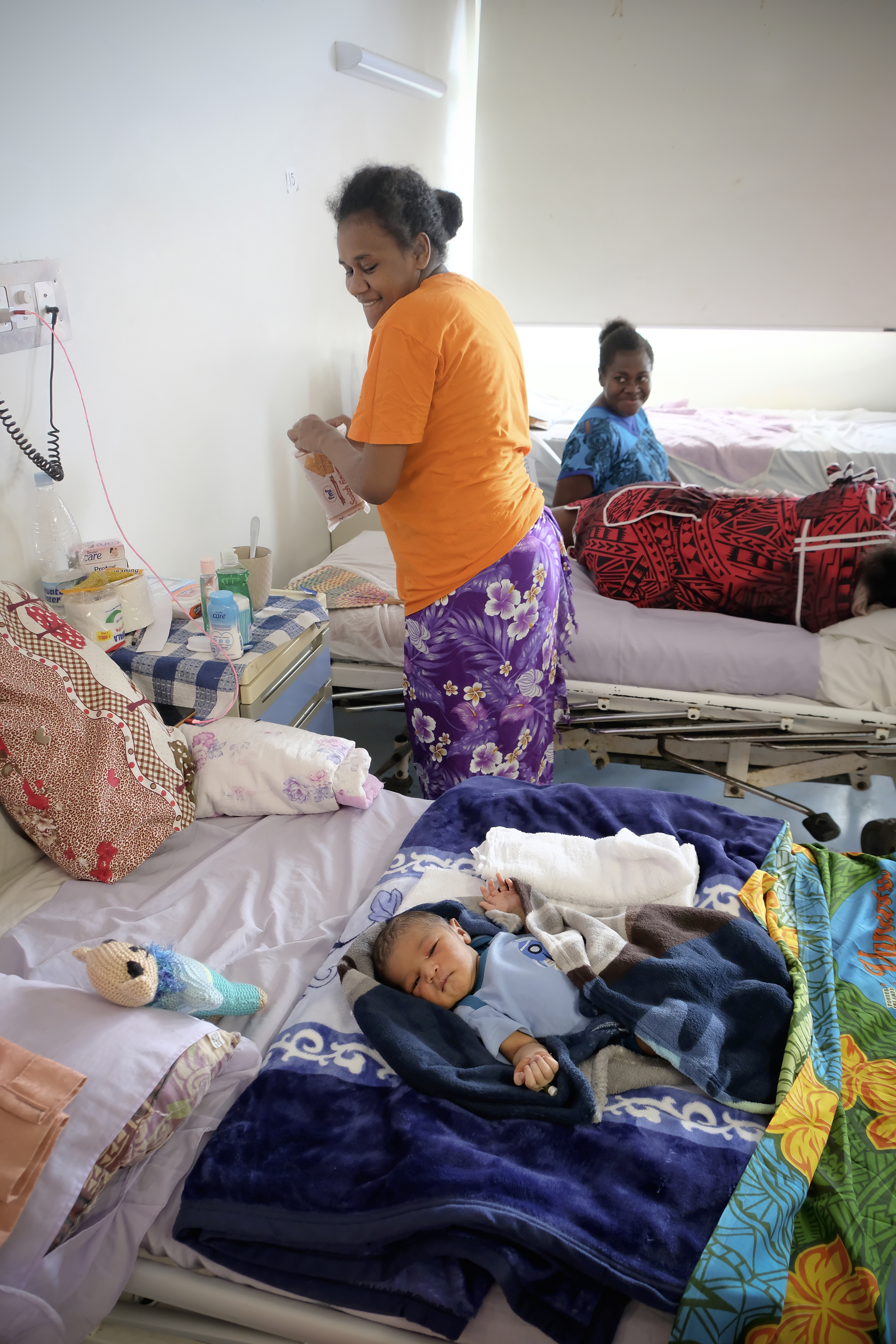
Cradled in the safety of the maternity ward, a new-born baby slumbers peacefully. In the national language of Vanuatu, Bislama, this tiny miracle is known as a 'Pikinini', a term with origins from the Portuguese word 'pequenino', encapsulating the tender meaning, 'the little one’. © UNFPA/David Palazón
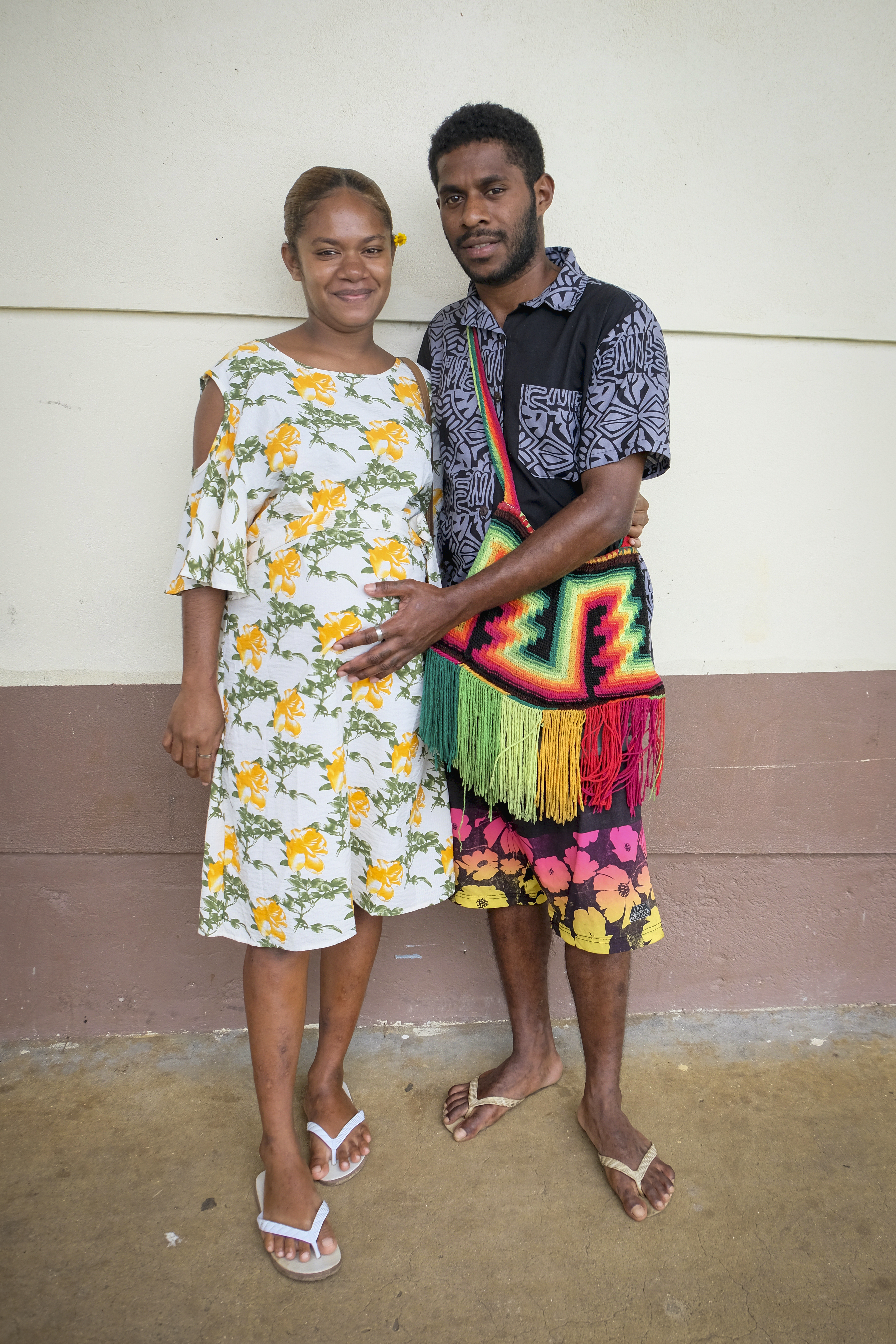
Celine, 19, and Benjamin, 22, are a young couple expecting their first child. As part of a new generation in Vanuatu embracing family planning, they explained they were considering having just one child, reflecting a growing trend in Vanuatu. This young couple represents the hopeful future of a country where every pregnancy is wanted, every childbirth is safe, and every young person's potential is fulfilled. © UNFPA/David Palazón

